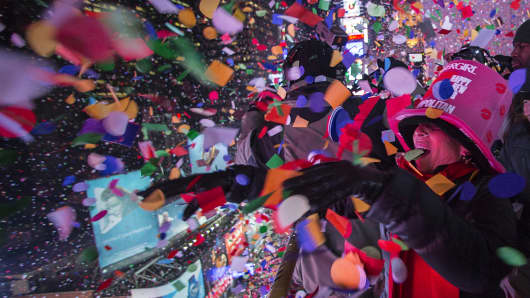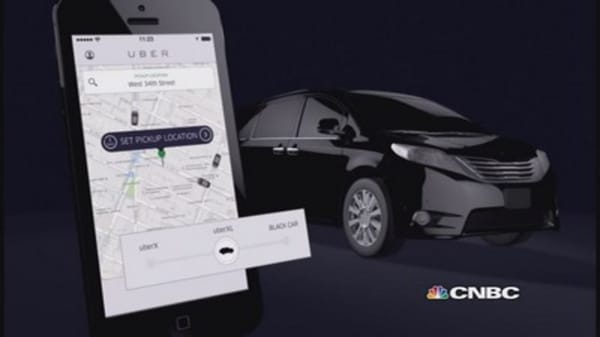
Keith Bedford | Reuters
Revelers toss confetti over Times Square from a hotel balcony as the clock strikes midnight during New Year's Eve celebrations in New York, Jan. 1, 2015.
There was nothing illegal about Uber charging different prices during the wee hours of the New Year from those it charges on, say, Mother's Day. And, from a business perspective, it makes sense for Uber: If the company's projection that millions of riders will accept the peak-demand pricing ends up being right, surge pricing could translate into gross revenue in the hundreds of millions of dollars. But does the transparency of Uber's pricing make it ethical?
In a market economy, demand and price generally move in tandem. When demand goes up for a good or service, price generally goes up as well.
Read MoreWhoa! Test driving the Audi A7 — a car that drives itself
And yet there is a reflexive disgust at merchants that seek to take advantage of human misfortune by hiking prices in response to elevated demand brought on by emergencies, such as weather-related calamities. About 35 states make it illegal for all or some businesses to charge prices that are unconscionable, defined in various ways, during times of emergency. States with such "price gouging" laws include California, Illinois, Louisiana, New Jersey, and New York.
Colorado is among the states that lack a broad price gouging law. In a Sept. 17, 2013 story, The Denver Post quoted Colorado Assistant Attorney General Jan Zavislan as saying: "The price of a product or service alone is not a scam if it's fully disclosed. If the consumer has the information and has the right to shop around, but the sources in an emergency aren't there, it might be an outrage to people, but there's no specific law on the price itself."
Is Uber's pricing on New Year's Eve more like emergency-triggered price gouging or more like the ethically uncomplicated dynamic pricing used by airlines and others to vary the price of product based on shifting demand? The answer has to be that Uber's pricing is ethically more like the latter than the former.




